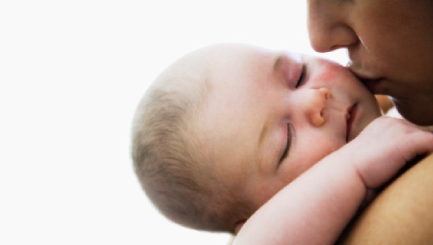Skin-To-Skin Contact Could Relieve Postnatal Depression
 A number of women find motherhood to be a very overwhelming situation. Hormonal changes, new responsibilities and a new lifestyle can make things especially hard on first-time mothers who don’t really understand what they are in for.
A number of women find motherhood to be a very overwhelming situation. Hormonal changes, new responsibilities and a new lifestyle can make things especially hard on first-time mothers who don’t really understand what they are in for.
This leads to a lot of mothers suffering from postnatal depression, or the ‘baby blues’. In fact, the rates of developing postnatal depression within the first six weeks of delivery are actually on the rise. The symptoms of the condition typically include sadness, anxiety, compulsive thinking, fear and feelings of inadequacy.
It’s well known that postnatal depression doesn’t only affect the mother, but the child as well, placing both under high levels of stress that isn’t good for either of their wellbeing. The child of a mother with postnatal depression can be at risk of developmental difficulties in social, emotional and cognitive areas.
Many women choose counselling or group therapy to try get over the symptoms. But a new study suggests that there might be an even better way. According to the Journal of Obstetric, Gynaecological, and Neonatal Nursing, skin-to-skin contact between the mother and child could be an excellent way to reduce postnatal depression.
The study specifically suggested that six hours of skin-to-skin contact for the first week, followed by at least two hours for the next month is the most effective tactic for staving off depression. Women who did this reported fewer depressive symptoms.
Interestingly, the treatment was also very effective for the baby. Babies who received skin-to-skin contact with their mother for at least three hours were found to cry 43 percent less than babies who didn’t get this level. This can be a very calming influence for the mother who may have anxiety about how to stop her baby from crying.
Wearing a baby carrier could be the best way to get the levels of contact that are required. This means that the mother can get on with her daily routine and still get plenty of contact with her baby.


Comments are closed.